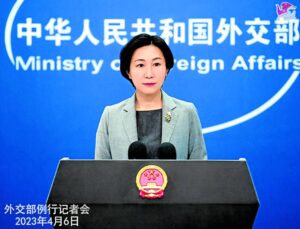WASHINGTON — The United States and Japan agreed to co-host study tours for Filipino scientists and engineers with a view to enabling them to operate and manage nuclear plants, the leaders announced on Thursday.
In the joint statement after the trilateral summit among President Ferdinand Marcos Jr., US President Joe Biden and Japanese Prime Minister Fumio Kishida, the leaders backed the Philippines’ bid to boost nuclear energy use capabilities.
READ: Trilateral event at Indo-Pacific forum to eye Luzon corridor investments
“Recognizing the Philippines’ request for further training and capacity building for scientists, engineers and relevant personnel and policymakers, our three nations seek to expand our partnership on safe and secure civil-nuclear capacity building,” the statement read.
“Under the Foundational Infrastructure for Responsible Use of Small Modular Reactor Technology (FIRST) program, the United States and Japan plan to co-host a nuclear energy study tour in Japan for nuclear experts and policy decision-makers from the Philippines and other FIRST partner countries,” they added.
“We also plan to deepen trilateral cooperation on civilian nuclear workforce development through a trilateral dialogue this year, to advance the Philippines’ civil nuclear energy program,” the leaders noted.
While campaigning for the presidency, Marcos promised to bring the Philippines to the nuclear age in a bid to lower power costs—one of the most expensive in Asia—and reduce the carbon footprint of the country, which relies mainly on coal-fired power plants.
There have been intermittent talks with US technology providers about the use of small modular reactors in the Philippines.
Since 2023, the Philippine conglomerate Prime Infrastructure Capital Inc., owned by tycoon Enrique Razon Jr., has maintained talks with US nuclear technology provider NuScale.
Prime Infrastructure Capital said that the “future investment value of the project would be in the range” of $6.5 to $7.5 billion.
Last November 2023, the Philippines and the United States signed the landmark 123 agreement—a deal that the United States strikes with allies for nuclear energy cooperation.
The term ‘123’ was derived from Section 123 of the US Atomic Energy Act, which says partners in nuclear energy cooperation are legally obligated to observe standards and to defer using the deal for nuclear weapons creation.
Negotiations for the agreement started when US Vice President Kamala Harris went to the Philippines in November 2022.
All three countries also reiterated support for deeper cooperation in the transition to clean energy—which entails creating supply chain jobs and ensuring fair competition among clean energy providers.


